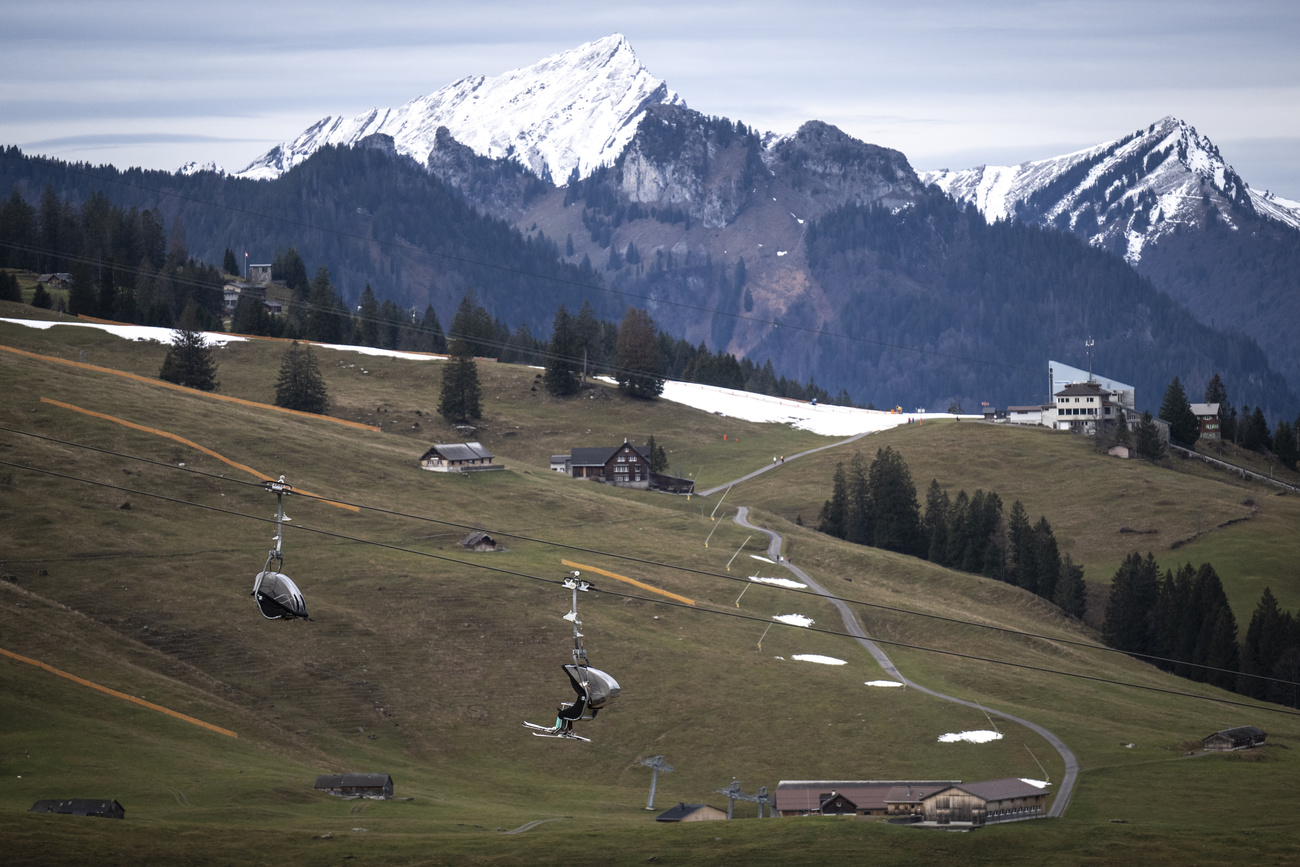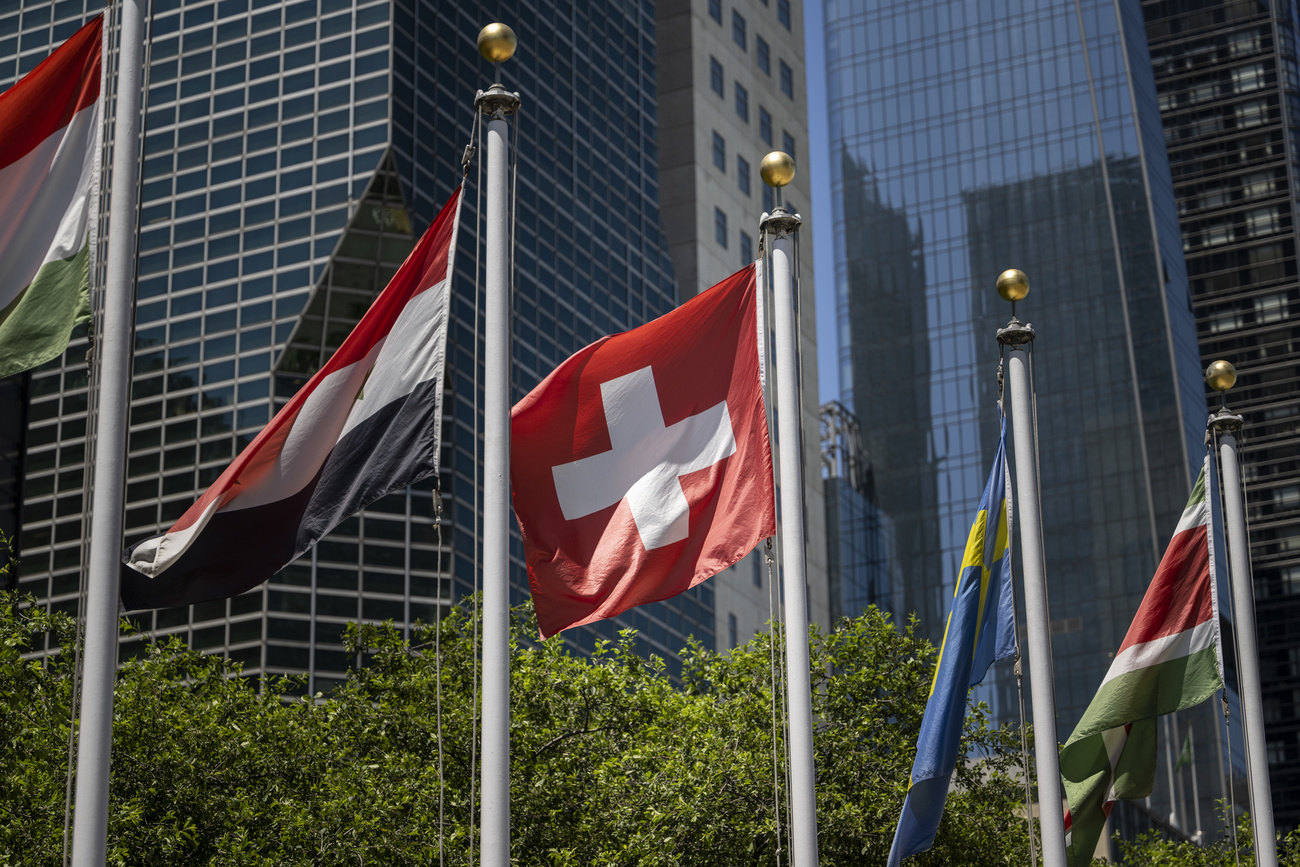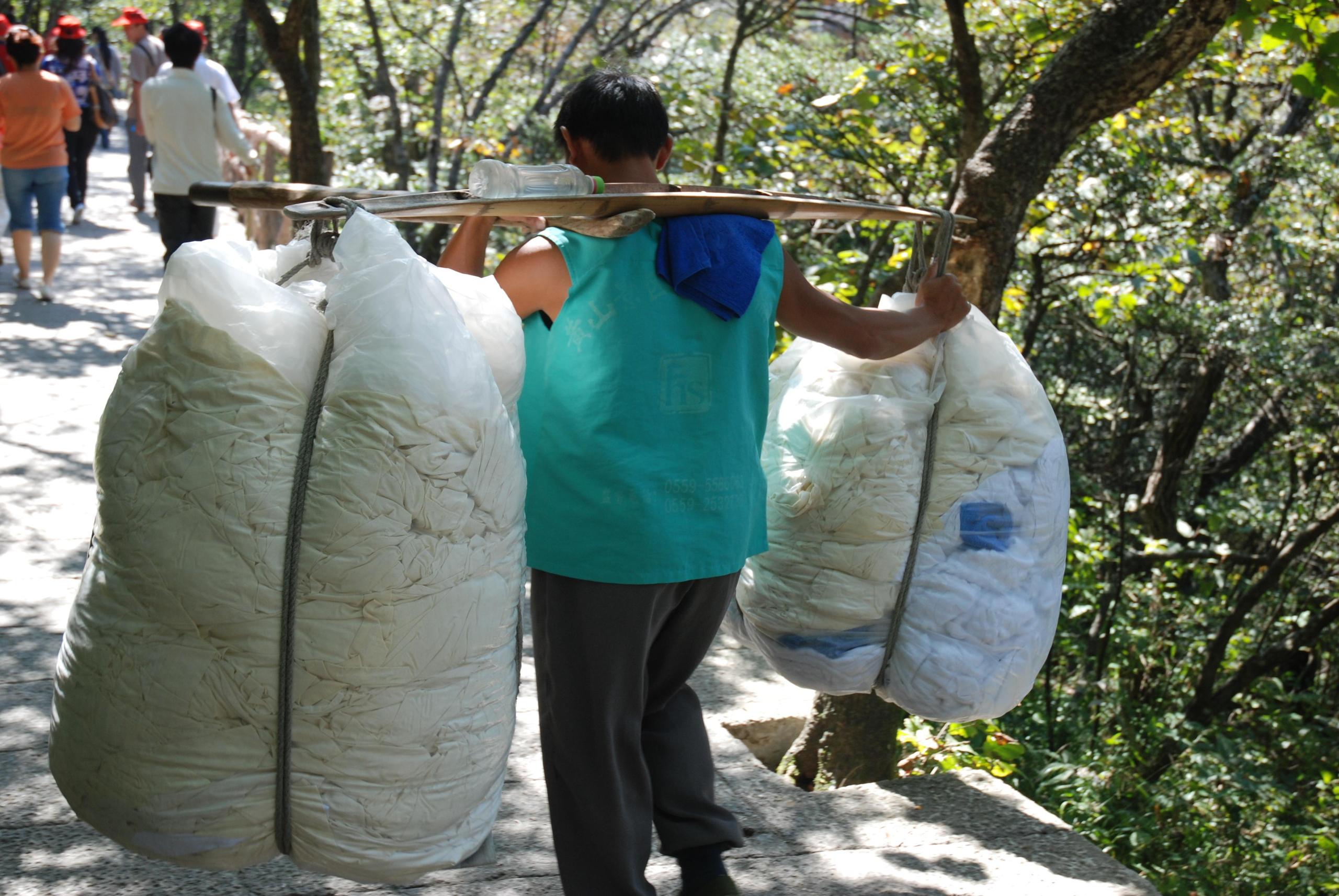
Switzerland Today
Dear Swiss Abroad,
Switzerland’s lush green Alps are understandably loved by locals and tourists alike. Swiss cable car operators, however, are pulling their hair out at the sight of endless grass at the moment. Add to that a massive increase in the price of electricity, and things really are going downhill for them.

In the news: The Swiss flag has been hoisted at the United Nations headquarters in New York to mark Switzerland’s entry into the organisation’s Security Council.
- The Swiss flag was installed yesterday alongside those of Ecuador, Malta, Mozambique and Japan, who have also joined the Security Council as non-permanent members for two years. “We need the support of young people and women to ensure lasting peace [in the world],” said Swiss Ambassador to the UN Pascale Baeriswyl at the official ceremony. “We will work in a spirit of shared responsibility, with deep humility.”
- The recent football World Cup in Qatar was a PR disaster for world football’s Zurich-based governing body FIFA. It hasn’t taken Gianni Infantino, FIFA’s unpopular Swiss president, long to get embroiled in another controversy. After Infantino was pictured taking a selfieExternal link near the open coffin of football legend Pelé, criticism on social media was swift and unforgiving: “classless”, a “disgrace”, “horrible” and “disgusting” were the views of some Twitter users.
- A Swiss customs officer got a surprise when he stopped a seven-seater car at the Swiss border with Germany and nine adults and 14 children got out. The extended family wanted to travel to Bern, the police said yesterday. The driver, who lives in Switzerland, now faces a fine for transporting several people without adequate security. The family was allowed to enter Switzerland – but not all in the same car.

In the face of evidence that Chinese cotton is picked mainly by forced labour, particularly by Uyghur workers, many Western textile companies are turning to other supply sources. But sourcing “clean” cotton is easier said than done.
With its slogan “We Care”, Swiss outdoor supply firm Mammut casts itself as a pioneer of sustainability. None of its products is manufactured in the Chinese province of Xinjiang, and none of the cotton it processes comes from this region, the Swiss company wrote in May 2022.
It has become increasingly difficult for businesses to turn a blind eye to the plight of cotton pickers in Xinjiang. The United Nations suspects crimes against humanity. The United States has introduced an import ban; and the European Commission is seeking to adopt a similar instrument. In Switzerland, the federal parliament is considering whether to extend a newly adopted law to cover forced labour. Customers too are increasingly concerned about supply chains.
But avoiding products from suppliers that trample on human rights is complicated. As journalist Ariane Lüthi explains, with the help of graphics by Pauline Turuban, trade routes are long and convoluted, and the origin of the fibres opaque.
“In many cases, the path from raw material fibres to a finished garment now passes through countless production sites and several continents,” Mammut wrote. “The result: an enormous amount of work is required to monitor the conditions under which a product is produced.”

The ski pistes in Disentis, in Romansh-speaking eastern Switzerland, are currently green. “We have too warm weather and far too little snow,” says Stefan Arnold, director of Disentis’s cable cars.
Indeed, over the past couple of weeks much of Europe has been enjoying record temperatures for the time of year. Some low mountain resorts have even opened their summer biking trails rather than try to offer winter sports.
An additional concern is the looming electricity bill, which in the next two years will increase sevenfold. “We had a very good contract for many years and now we’ve just had bad luck,” Arnold told Swiss public television, SRFExternal link, today.
The cable cars will now have to save electricity; some are already running more slowly. Because of the higher rates, the Disentis cable cars are expecting a loss of CHF800,000 ($860,000) for this season. Disentis set the ticket prices for skiing last March, and despite the additional costs there will be no increase. But “next season we won’t be able to avoid a price increase”, says Marcus Weber, president of the board of directors of Disentis’s cable cars.
The electricity supplier at Disentis is Axpo. SRF confronted the electricity company about the massive price increases. Axpo responded in writing that it had sold its electricity for 2023 to customers in Switzerland up to three years ago. It too is massively affected by the price increases and turbulence on the European energy markets, it said. The war in Ukraine is causing record high electricity prices in Europe, Axpo pointed out.
More

In compliance with the JTI standards
More: SWI swissinfo.ch certified by the Journalism Trust Initiative
